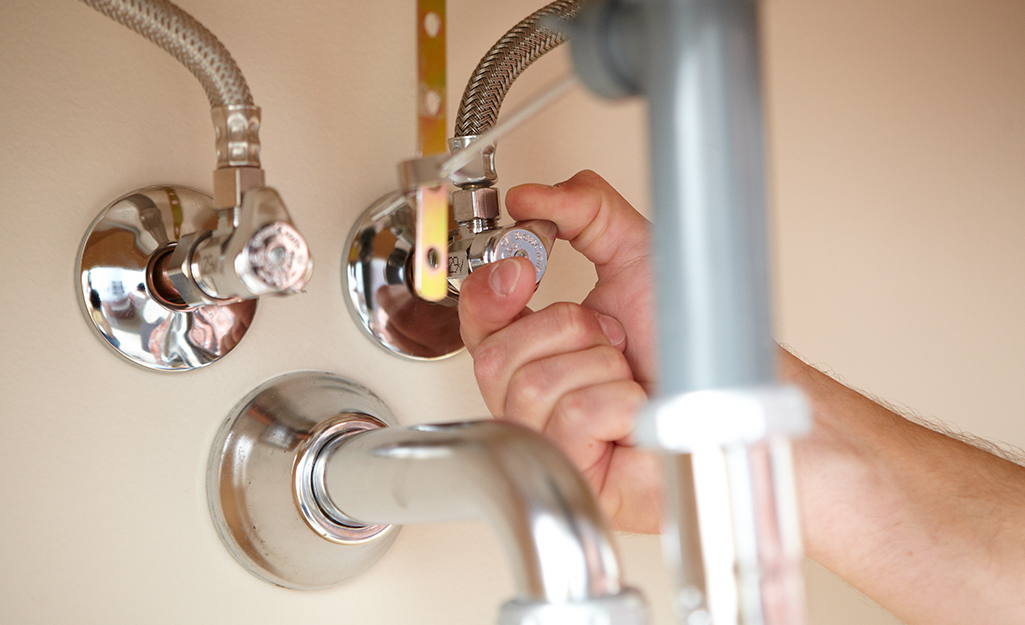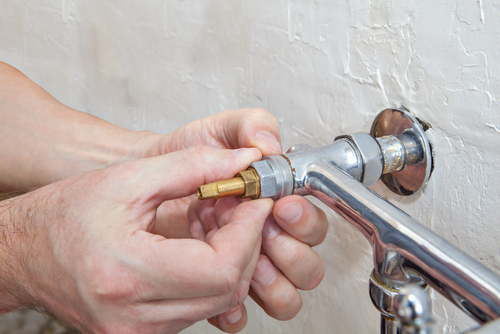Our Reasons Behind Resolving a Malfunctioning Faucet
Our Reasons Behind Resolving a Malfunctioning Faucet
Blog Article
Nearly everybody has got their unique idea about Why It's Important to Fix Leaky Faucets.

Trickling faucets might feel like a small inconvenience, but their impact goes beyond simply the annoyance of the audio. From wasting water to sustaining unnecessary economic expenses and health and wellness risks, disregarding a dripping tap can lead to numerous effects. In this post, we'll explore why it's essential to address this typical house issue without delay and effectively.
Wastage of Water
Environmental Effect
Leaking taps add dramatically to water wastage. According to the Epa (EPA), a single tap leaking at one drip per second can lose greater than 3,000 gallons of water annually. This not just stress water resources however likewise affects environments and wildlife dependent on them.
Step-by-Step Guide to Taking Care Of a Dripping Faucet
Devices Called for
Prior to attempting to take care of a dripping faucet, gather the essential devices, including a flexible wrench, screwdrivers, substitute parts (such as washing machines or cartridges), and plumber's tape.
Typical Faucet Issues and Their Solutions
Determine the kind of tap and the specific concern causing the drip. Common issues include worn-out washers, corroded valve seats, or malfunctioning O-rings. Describe supplier guidelines or on-line tutorials for detailed support on repair work.
Financial Expenses
Enhanced Water Bills
Beyond the environmental impact, dripping faucets can pump up water costs substantially. The built up wastage over time converts right into higher energy costs, which could have been prevented with timely repair work.
Possible Residential Or Commercial Property Damages
Furthermore, long term leaking can cause damage to components and surfaces surrounding the tap. Water buildup can trigger staining, corrosion, and also architectural problems if left neglected, causing extra repair work expenses.
Wellness Worries
Mold And Mildew and Mold Growth
The consistent presence of moisture from a trickling tap produces an ideal environment for mold and mold development. These fungis not just endanger indoor air top quality but likewise position health and wellness risks, particularly for people with respiratory conditions or allergic reactions.
Waterborne Conditions
Stagnant water in trickling taps can come to be a breeding ground for germs and other microorganisms, raising the risk of waterborne illness. Impurities such as Legionella germs prosper in stagnant water, potentially bring about major diseases when consumed or inhaled.
Do it yourself vs. Professional Repair service
Pros and Cons of Do It Yourself Repair
While some might try to deal with a trickling tap themselves, DIY repair work come with their very own set of challenges. Without appropriate understanding and devices, DIY efforts can intensify the issue or lead to incomplete fixings, prolonging the problem.
Advantages of Working With a Specialist Plumber
Hiring a professional plumber makes certain that the underlying source of the dripping faucet is dealt with efficiently. Plumbing technicians possess the know-how and equipment to identify and repair tap issues successfully, conserving time and lessening the risk of more damages.
Environmental Duty
Private Contribution to Conservation
Taking responsibility for dealing with trickling faucets aligns with more comprehensive efforts towards water conservation and ecological sustainability. Every individual's actions collectively make a considerable impact on maintaining precious resources.
Sustainable Living Practices
By prioritizing timely repair services and taking on water-saving behaviors, people contribute to lasting living methods that benefit both present and future generations.
Safety nets
Routine Maintenance Tips
To avoid leaking faucets, do routine maintenance such as cleaning up aerators, examining for leakages, and changing damaged components promptly. Additionally, take into consideration mounting water-saving gadgets or upgrading to more reliable components.
Significance of Prompt Fixes
Resolving leaking faucets as soon as they're noticed prevents further water wastefulness and potential damage, eventually conserving both water and money in the long run.
Effect On Residential Property Worth
Perception of Well-Maintained Residential Property
Keeping a property in good condition, consisting of addressing upkeep problems like dripping faucets, improves its perceived worth and value among prospective purchasers or lessees.
Influence on Resale Value
Residences with properly maintained plumbing components, consisting of taps, command higher resale values in the realty market. Attending to leaking faucets can contribute to a positive impression during building inspections and arrangements.
Verdict
Addressing a trickling tap goes beyond simple comfort; it's an essential action toward conserving water, lowering financial prices, and safeguarding wellness and residential property. Whether via DIY repair services or expert help, acting to take care of leaking faucets is a little yet impactful method to advertise liable stewardship of sources and contribute to a much healthier, extra lasting future.
How to Fix a Leaky Faucet: Step-by-Step Repair Guide
A leaky faucet may seem like a simple annoyance, but if it's not fixed promptly, that leak could cost hundreds to potentially thousands. From water damage to mold, mildew, and high water bills, even a tiny leak can be catastrophic if left unattended. Damage like this can even affect the overall value of your home, so it's important to take the right approach for leaky faucet repair. You may need the help of a plumber in some cases, but we've got a few tips you can try on how to fix a leaky faucet before calling the pros.
Four Faucet Types
When you're learning how to fix a leaky faucet, the first step is knowing what kind of faucet you're working with! There are four common types.
Cartridge Faucets
Cartridge faucets come in one- or two-handled varieties. In one-handled cartridge faucets, hot and cold water combines in a single cartridge. In the two-handled versions, hot and cold water are controlled separately and mixed in the faucet.
Ball Faucets
Ball faucets have a single lever you push up and down to adjust the pressure and rotate to change the temperature. A slotted metal ball controls the amount of water allowed into the spout.
Compression Washer Faucets
They're the oldest type of faucet, but they're still used in many homes — especially older ones. Compression faucets have two separate handles that, when turned, raise or lower the washer that seals a water valve. This valve stops water from flowing through the faucet when it is turned off.
Disc Faucets
Disc faucets rarely need to be repaired due to their maintenance-free design. The water flow is controlled by two discs — the upper one raises and lowers against a fixed lower disc, creating a watertight seal. If your disc faucet starts leaking, you may need to replace the seals or clean residue buildup from the inlets.
Fixing a Leaky Faucet
Step 1: Turn Off the Water
Whether you're learning how to fix a leaky bathtub faucet or how to fix a leaky kitchen faucet, always turn off the water supply to your working area when you're fixing a leak. The last thing you want is a flood added to your list of things to fix.
Look for the shutoff valves below your sink or around the tub and turn them clockwise to stop the water flow. If your faucet doesn't have shutoff valves, you may need to turn off the water for the whole house. Check to make sure it's off by turning the faucet on. If nothing comes out, you're ready to start the repair.
Step 2: Take Apart the Faucet
How you disassemble your faucet depends on the type of fixture you have. You can use a flathead screwdriver to remove the caps on top of the handle or handles for cartridge and compression faucets. Inside, you should see handle screws. Unscrew these with a screwdriver to remove the handle.
Disc- and ball-style faucets will typically have an inlet screw near the handle, and removing that will reveal the interior of the faucet.
Detach the Valve Stem
For cartridge- and compression-style faucets, you'll see the inner valve stem or cartridge once you remove the faucet handles. If you have a compression faucet, unscrew the brass valve stem. If you have a cartridge faucet, pull out the cartridge. If your cartridge has been in place for a while, it may require some tools or extra force to remove it due to mineral deposits.
Examine and Replace Parts
Once you've removed the parts, check them out to confirm what needs to be replaced. You may see corroded rubber washers, O-rings, stems, or cartridges. On a ball-style faucet, check the seats and springs for damage.
If you need to repair a leaky disc faucet, check the inlet and seals on the lower disc.
Once you determine what parts must be replaced, visit your local hardware store. Bring the damaged parts with you to ensure you can purchase the correct components to replace them.
Clean Valves and Faucet Cavity
If you've removed a stem or cartridge, you may notice mineral buildup in the faucet's threads. Use white vinegar to clean the valve seat by soaking it for a few minutes, then scrub it away with a soft toothbrush and rinse with warm water. You can also clean the interior of the faucet in the same way.
Reassemble the Faucet
Once your faucet is cleaned and the required parts have been replaced, it's time to reassemble it. Put the pieces back together and slowly turn the water supply back on. Doing this slowly is crucial because too much initial water pressure can damage the new hardware you've just installed.
https://homewarranty.firstam.com/blog/how-to-fix-leaky-faucet

Hopefully you enjoyed reading our post on . Thank you so much for taking time to read through our content. For those who appreciated our article if you please be sure to pass it around. Thank you so much for going through it.
Report this page